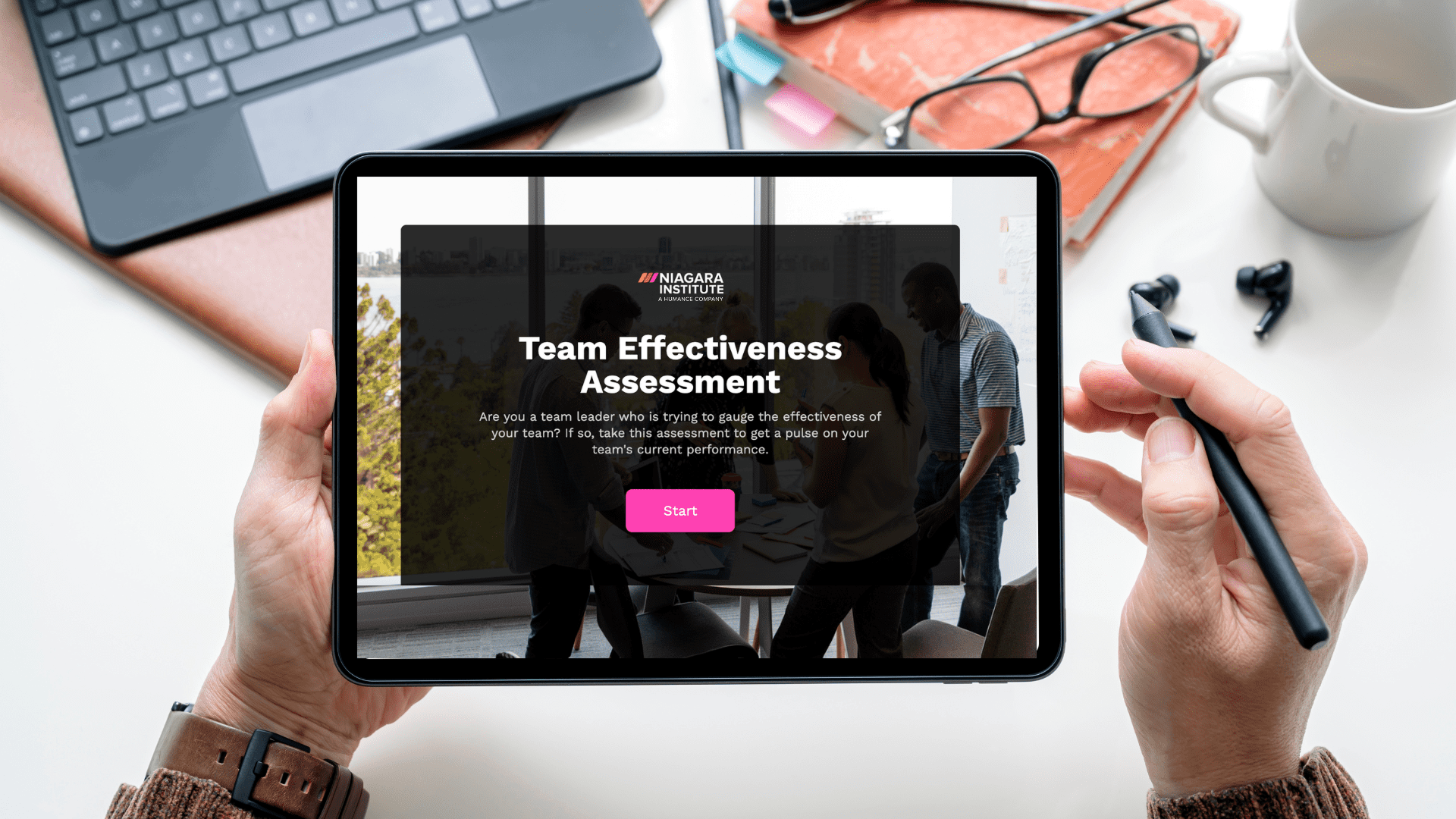6 min read
9 Ways You Can Boost Team Effort
It’s challenging to get any initiative off the ground or project completed without some degree of team effort. Compared to the past, employees are...

Regardless of whether you are leading an intact or project team, are located under one roof, or spread across the country, all team leaders want the same thing: to see their team be optimally effective. But what's the reality? Just how effective are you, actually? To help you find out, read on to learn more about team effectiveness assessments and take one for yourself!
A team effectiveness assessment is a tool team leaders can use to help identify their team's strengths and potential areas of weakness for improvement. Typically, topics such as commitment, communication, clarity, accountability, psychological safety, culture, and achievements, are assessed. Ideally, once the assessment is taken, a team leader will corroborate their findings with the team and then put an action plan in place to make the necessary improvements.
To get the most realistic results possible from this free team effectiveness assessment, do not answer the questions on what you think the right answer should be, but how it actually is based on the day-to-day actions and behaviors of your team.
Find out what your team thinks about how effective they are by running through the following list of 25 questions based on the assessment above in your next staff meeting. As you do so, pay attention to how their answers reflect or differentiate from your own, and then work together to brainstorm ideas on how you can improve as a team.
Now that you have an idea of where your team stands in terms of its effectiveness, you may be keen to improve. If so, we recommend implementing the tips, tricks, and tools from the following resources in your day-to-day life as a team leader:
Team Alignment Worksheet: Facilitate a discussion about your team's goals, values, and behaviors with the help of this editable worksheet.
What You Need to Know About Team Vision: A team vision summarizes the purpose of your team and answers the question of what you aspire to do. Granted, this is easier said than done. To learn more about how to create and articulate a strong team vision, this article is a must-read.
Staff Meetings Toolkit - Lead the Meeting You’ve Always Wanted to Attend: If you're hosting meetings with your team that are subpar, you can be unknowingly compromising your team's effectiveness. Fortunately, you can start leading better team meetings, both in-person and virtual, with the help of this toolkit.
The Biggest Team Culture Mistake You Don’t Want To Make...: The single biggest mistake you can make when it comes to team culture is doing nothing about it. In fact, by taking a laissez-faire attitude about it, you lose the opportunity to create a culture and environment that stimulates team performance and effectiveness.
Team Accountability Assessment: Given that a crucial component of team effectiveness is accountability, team leaders should look closely at whether or not their team has the necessary level of accountability. To help you do so, start by taking this assessment.

6 min read
It’s challenging to get any initiative off the ground or project completed without some degree of team effort. Compared to the past, employees are...
.png)
7 min read
Do you want to be a great manager but it feels like you never have enough time and brain capacity to possibly meet everyone’s needs of you? If so,...
.png)
6 min read
Having a great team is essential for achieving outstanding results. While individual talent and expertise play a crucial role, harnessing the...